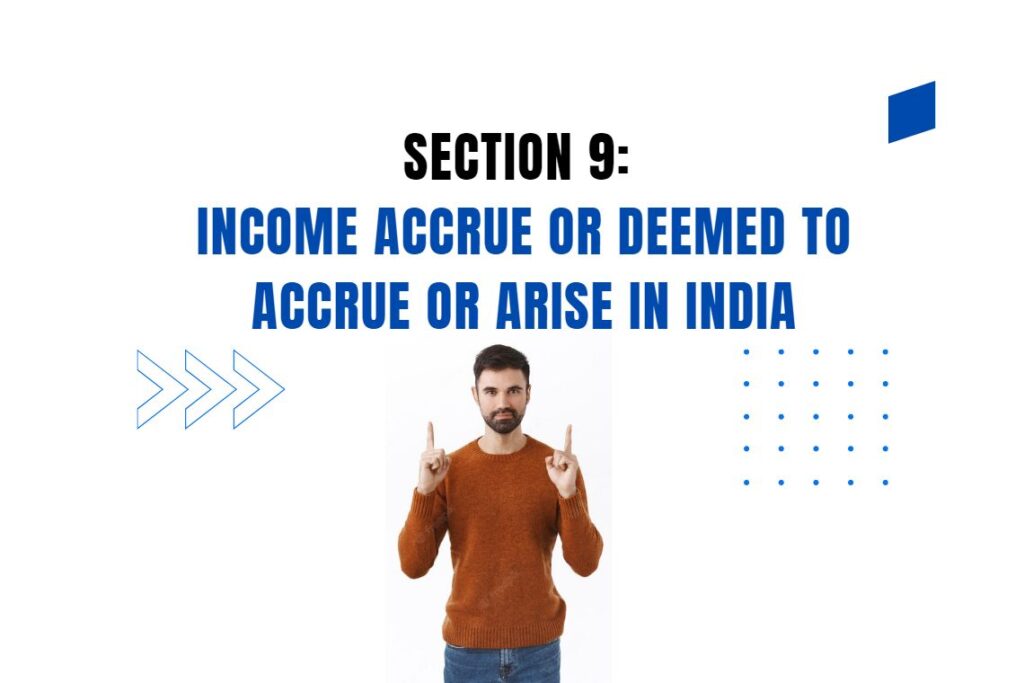1. Statutory Framework
Section 5 defines the scope of total income based on the taxpayer’s residential status, which determines whether income earned within or outside India is taxable. The provision categorizes taxpayers into three classes:
- Resident and Ordinarily Resident (ROR)
- Resident but Not Ordinarily Resident (RNOR)
- Non-Resident (NR).
2. Taxability Based on Residential Status
The table below summarizes the scope of income chargeable to tax for each category:
| INCOME TYPE | ROR | RNOR | NR |
| Received/Deemed Received in India | Taxable | Taxable | Taxable |
| Accrues/Arises/Deemed in India | Taxable | Taxable | Taxable |
| Foreign Income (Business Controlled in India) | Taxable | Taxable | Not Taxable |
| Foreign Income (Business Outside India) | Taxable | Not Taxable | Not Taxable |
| Past Untaxed Foreign Income Remitted to India | Not Taxable | Not Taxable | Not Taxable |
Key Notes:
- RORsare taxed on global income.
- RNORs/NRsare taxed only on India-sourced income (except for RNORs with foreign income from India-controlled businesses) .
- Past untaxed foreign incomeremitted to India is exempt for all categories .
3. Key Concepts
- Income “Received” in India:
- Includes income physically receivedin India (e.g., salary credited to an Indian bank account) .
- Deemed receipt: Income accrued abroad but repatriated to Indiais taxable for RORs .
- Income “Accruing/Arising” in India:
- Covers income from Indian assets, services, or businesses(e.g., rent from property in Mumbai) .
- Deemed accrual: Royalties from Indian patents or technical services used in India .
- Exceptions for NRIs/RNORs:
- NRIsare exempt on foreign dividends unless remitted to India.
- RNORsexempt foreign income unless derived from an India-controlled business .
4. Practical Examples
- ROR Example:
A (ROR) earns ₹10L salary in India + ₹5L dividends from US stocks. Total taxable income: ₹15L . - RNOR Example:
B (RNOR) has ₹8L rental income in India + ₹3L from a UK business (not India-controlled). Taxable income: ₹8L . - NR Example:
C (NR) earns ₹12L from an Indian client but lives abroad. Taxable income: ₹12L .
5. Special Provisions
- Indian Citizens Earning >₹15L:
Even if they fail the 182-day residency test, they may be deemed RNORsif:- Their Indian incomeexceeds ₹15L, and
- They are not tax-liablein any other country .
- 60-Day Rule Exception:
For Indian citizens leaving for employment abroad, the 60-day threshold extends to 182 days


![Residential Status [Sections 5 to 9B]](https://incometaxmanagement.in/wp-content/uploads/2023/09/Residential-Status-Sections-5-to-9B-1024x683.jpg)

![EXEMPTED INCOMES [Section – 10, 10AA, 11 to 13A]](https://incometaxmanagement.in/wp-content/uploads/2023/09/Exempted-Incomes-Section-10-1024x683.jpg)

![Income of an Electoral Trust shall be Exempt [Section 13B]](https://incometaxmanagement.in/wp-content/uploads/2023/10/61-Exempted-Incomes-Section-13B-1024x683.png)
![Incomes of Political Parties [Section-13A]](https://incometaxmanagement.in/wp-content/uploads/2023/10/60-Exempted-Incomes-Section-13A-1024x683.png)
![Special Provisions in respect of Newly-established Units in Special Economic Zones (SEZ) [Section-10AA]](https://incometaxmanagement.in/wp-content/uploads/2023/10/59-Exempted-Incomes-Section-10AA-1024x683.png)
![Exemption in respect of income chargeable to Equalization Levy [Section 10(50)]](https://incometaxmanagement.in/wp-content/uploads/2023/10/58-Exempted-Incomes-Section-1050-1024x683.png)
![Income of a Developmental Financing Institution (DFI) to be Exempt [Section 10(48E)]](https://incometaxmanagement.in/wp-content/uploads/2023/10/57-Exempted-Incomes-Section-1048E-1024x683.png)
